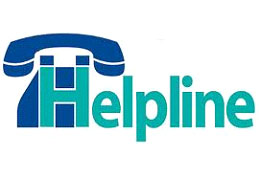Resources for Parents: 
- A Resource for Parents on Returning to In-Person Learning. Source: 8/2021. U.S. Department of Education
- Find Your New York Regional Food Bank. New York interactive map to locate food banks.
- How Big Is My Problem? Useful article with graphic to help children discern different levels of problems to encourage self problem solving for lesser needs. Source: Monke, A. 10/24/2016. Sunshine Parenting
- Resources for Supporting Children’s Emotional Well-being during the COVID-19 Pandemic Scroll down to highlighted points. Scroll further for links to activities and other resources. Source: Bartlett, J, Griffin, J. & Thomson, D. 3/19/2020. Child Trends
- Single Parenting During the Coronavirus. Strategies for Managing When You Are Going It Alone. Source: Garey, Juliann. 2020. Child Mind Institute.
- Supporting Families during COVID-19. Source: Child Mind Institute.
- *Supporting Kids During the Coronavirus: Tips for nurturing and protecting children at home. Good, practical information for parents. Source: Child Mind Institute.
- Supporting Teenagers and Young Adults During the Coronavirus Crisis (Spanish) Source: Miller, C. 2020. Child Mind Institute
Resources & the Facts–Available in multiple languages
Help reduce anxiety. Become informed. Use reliable resources for the facts on COVID-19
- CDC Available in ASL Videos and several languages
- FDA COVID-19 English & Spanish
- Johns Hopkins COVID-19 Web pages translated in Arabic, Chinese, Korean. Russian & Spanish
- MEDLINE COVID-19
- World Health Organization COVID-19–Advice for the Public
Activities:
See also webpage: Resources & Activities for Parents
- Activities for Kids While Schools are Closed Source: National Center for MH in Schools & Student/Learning Supports at UCLA.
- At Home Learning: Create to Learn. These at-home activities infuses creativity in learning and empowers children with the colorful tools that bring their imaginations to life. Source: Crayola
- Caring for Preschoolers at Home. Source: 7/16/2020. Useable Knowledge
- COVID-19 Resources for Parents, Families & Youth. A”collection of resources below includes videos, toolkits, activities to use at home and more to support parents and caregivers and their children during the COVID-19 pandemic.” Source: National Federation of Families for Children’s Mental Health
- Disastershock: How to Cope with the Emotional Stress of a Major Disaster. FREE. 45 pages full of practical information, resources and step by step activities to help your child relax and cope with after or during a crisis including this pandemic.
- Parents Guide to Remote Learning. 24 pages. Source: Intel
- Resources for COVID-19 A list of various resources including Educational Links. Source: I’m afraid I lost it. I think it has been put together by a graduate student somewhere. Let me know if you know. : )
- Resources for Families During the Coronavirus Pandemic. Spanish. Lots of links to information, Free Educational Apps, Games, Audiobooks, Daily Schedules, On-line Events and Activities, etc. Source: Common Sense Media
Virtual Learning:
- Confident Parents Confident Kids Site provides resources, activities and discussion ideas that also support kids’ social and emotional development. Source: Confident Parents, Confident Kids. Retrieved 12/2/2020
- Free Tech for Learning: Directory of more than 700 free resources organized by grade, subject area, standards, and whether they are free or length of free trial. Source: ISTE & EdSurge
- New York State Education Department and New York’s Public Television Stations Announce Expanded Remote Learning
- School’s Out: A Parents’ Guide for Meeting the Challenge During the COVID-19 Pandemic Source: 3/19/2020| New York University Langone Health
- teach@home Free daily lessons & Activities for K – 5 students and more. Source: hand2mind
- Virtual Learning: 10 Best Practices for Parents. Source: Reinin, B. Teach, Train, Love . Retrieved 8/10/2020.
7 Simple Tips for Sheltered-in-place Parents
1. Turn off the TV news.
2. Keep routines.
3. Assure kids they are safe.
4. Control your emotions.
5. Model good behavior.
6. Offer age-appropriate advice.
7. Look, listen, then speak with hope, honesty and kindness.
Source: Dr. Steve Sroka. with permission
Talking with Children About COVID-19
- How to Talk to Your Anxious Child or Teen About Coronavirus. Source: Bhatia, Richa. Anxiety and Depression Association of America
- Just for Kids: A Comic Exploring the Coronavirus Comic cartoon presentation for kids. Source: Gharib. Malaka| 2/28/2020| NPR.
- Talking With Children: Tips for Caregivers, Parents, and Teachers During Infectious Disease Outbreaks (4 page) Spanish. Somali. Hmong. Source: 3/2020. SAMHSA
- Talking to Kids About the Coronavirus PreSchool Early Childhood Elementary Middle School High School Source: ParentsLead.
 Resources for Children with Special Needs
Resources for Children with Special Needs
If you have a child with a disability who is just entering school or changing levels, be sure to contact your district’s Special Education Director for assistance. If you are struggling to get resources and/or services from your local school district, ask to speak with the School Social Worker in your school who can also assist you in navigating the district maze.
- Autism Resources Source: Autism Society
- Coronavirus Social Stories: Elementary
- My Coronavirus Story: Source: Easter Seals: Illinois Autism Partnership.
- Brain Pop: Coronavirus Source: Brain Pop.
- LDA’s COVID Resources for Parents. Source: Learning Disabilities Association of America
- COVID-19 Resources for Parents, Families & Youth. A “collection of resources below includes videos, toolkits, activities to use at home and more to support parents and caregivers and their children during the COVID-19 pandemic.” Source: National Federation of Families for Children’s Mental Health
- Down Syndrome Resources Source: National Down Syndrome Society
- Education Department Addresses Special Ed Concerns During COVID-19 Guidance issued regarding IFSPs and services designed to prepare those with disabilities for employment. Source: Diament, M. 11/2/2020. Disability Scoop
- Special Health Care Needs Source: Family Voices
- Your Child with a Disability – Source: SPAN Parent Advocacy Network
Are You a Potential Victim of Domestic Violence?
Do You Need Help?
National Domestic Violence Hotline. Advocates are available 24/7 at 1-800-799-SAFE (7233) in over 170 languages. All calls are confidential and anonymous.
CRISIS TEXT LINE can be reached by texting HOME to 741741 and via Facebook Messenger from the organization’s website. “The ingredients for an increase in intimate partner violence are clear. Survivors are more isolated, their abusive partners are under more stress, and the options for escape have become more limited amid the outbreak.” (Axios)
Substance Abuse and Mental Health Services Administration’s Disaster Distress Hotline: Call 1-800-985-5990 or text TalkWithUs to 66746. Our texting service also is available to Spanish speakers. Text “Hablanos” to 66746 for 24/7 emotional support. TTY for Deaf/Hearing Impaired: 1-800-846-8517”
Call a Suicide Lifeline:
National Suicide Prevention Lifeline 1-800-273-TALK or 1-800-273-8255
Suicide Prevention Center Hotline: 1-877-7-CRISIS or 1-877-727-4747
Crisis Text Line: Text HOME to 741741
Trevor Lifeline – LGBTQ 1-866-488-7386
Teen Line 1-800-TLC-TEEN or 1-800-852-8336
Veterans & Military Families 1-800-273-8255 Press 1


